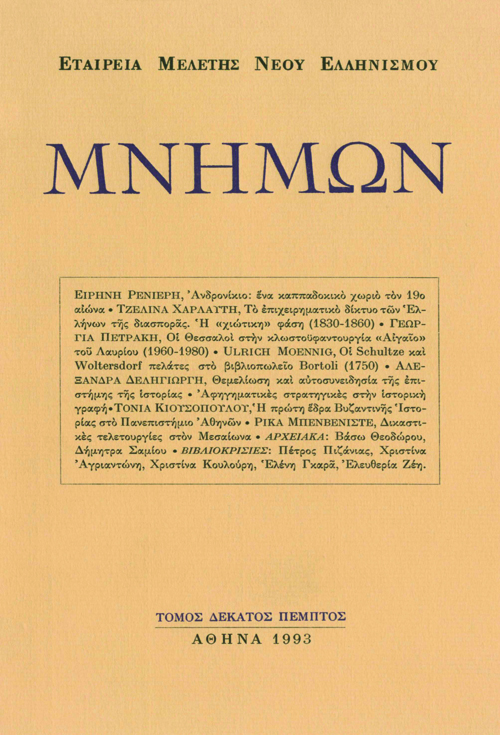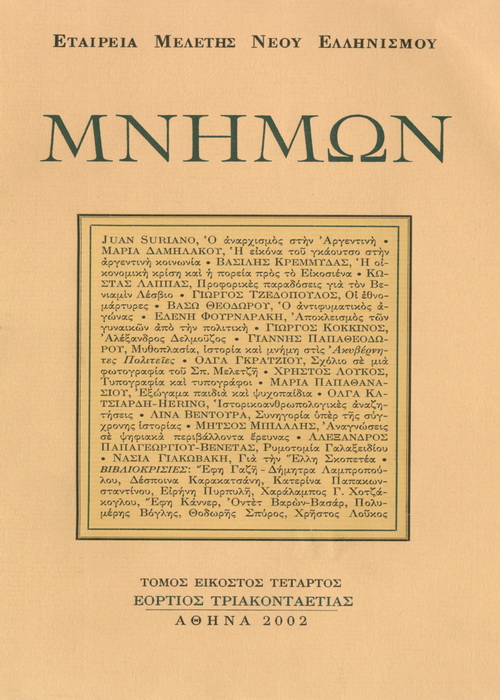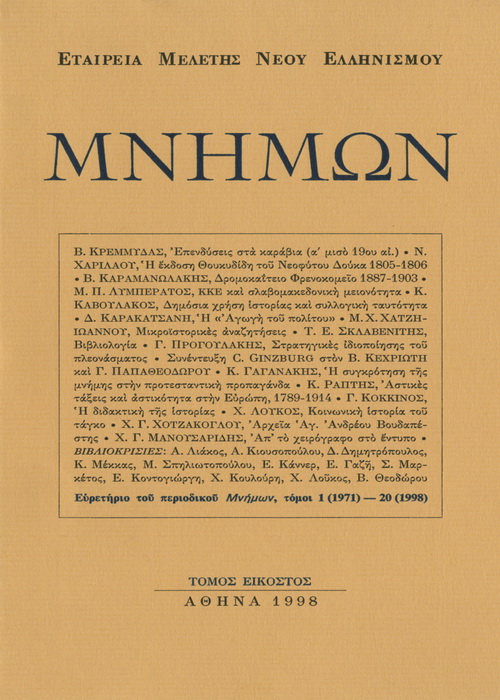«ΟΡΙΕΝΤΑΛΙΣΜΟΣ». ΤΟ ΚΕΙΜΕΝΟ ΩΣ ΓΕΓΟΝΟΣ
Abstract
Effie Gazi, «Orientalism». The «text» as «event».
This paper traces the impact of Edward Said's «Orientalism» on thesocial sciences in the twenty years that followed its first publication.Main emphasis is put on the analytical tools and interpretative strategiesgenerated through a critical reading of «Orientalism» by various disciplinesand fields. In this direction, four interlinked debates are identified:a) one focussing on the function of «Orientalism» as an heuristic toolrather than a general theory in order to overcome the reductionism inherentin holistic frameworks; b) a more or less orthodox marxist lineof argumentation emphasizing the need to move from the «representations» of non-western societies in the western imagination to a substantialstudy of those societies themselves with a particular interest in theirsocial stratification and class conflict rather than their «image»; c) adebate that prioritizes a reversed pattern of «Orientalism» arguing forthe use of the term «Occidentalism» and the need to identify the strategiesand concepts involved in the construction of the «West» ratherthan that of the «East» and d) the arguments produced within theframework of the «colonial discourse analysis» and more specifically the«Subaltern Studies Programme» that turn their interest in a furtherelaboration of the orientalist theme enriching particularly cultural analysiswith concepts such as hybridity, trans-culturation and ethnoorientalism.
Article Details
- How to Cite
-
ΓΑΖΗ Ε. (1999). «ΟΡΙΕΝΤΑΛΙΣΜΟΣ». ΤΟ ΚΕΙΜΕΝΟ ΩΣ ΓΕΓΟΝΟΣ. Mnimon, 21, 237–246. https://doi.org/10.12681/mnimon.795
- Issue
- Vol. 21 (1999)
- Section
- APPROACHES






